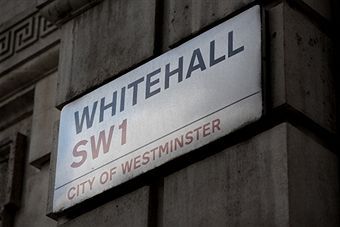 One of the greatest challenges for any minister – and, by extension, the government’s
programme – is to avoid being “mandarined”. That is, smothered by officials in the manner of Yes Minister. But it can happen to even the most powerful and outwardly confident
politicians. Here is how.
One of the greatest challenges for any minister – and, by extension, the government’s
programme – is to avoid being “mandarined”. That is, smothered by officials in the manner of Yes Minister. But it can happen to even the most powerful and outwardly confident
politicians. Here is how.
Reputation Management. First, the politician is thrilled to find herself or himself in office and is keen not to rock the boat – lest the Prime Minister is told by the Cabinet Secretary that the minister is under-performing. Tony Blair is said to have toyed with the idea of having report cards for ministers. As a result, the minister opts to push officials – but not too hard.
Knowledge Management. Second, the minister – even after years in politics – finds that he knows little about how the bureaucracy actually works. It is hard to differentiate which rule is cast in stone and which one only looks unchangeable; and officials pretend that all are cast in stone. Better, the minister concludes, to change only a few rules.
Time Management. Third, the minister finds that their schedule is full of meetings; and the more politically-relevant meetings, or the ones with people who offer alternative views, are squeezed. I have a recent example of this. Despite having been asked by a junior minister to come and see him, his office went to extraordinary lengths to foil the appointment. Only after numerous prods, emails and a call have they finally offered a date so far into the future that the subject meant to be discussed will be irrelevant.
Crisis Management. Finally, a bond of loyalty is forged between the minister and officials when, at an early stage, the officials save the minister from making a potentially job-loosing mistake. From then on, the minister either believes it is best to listen to officials or fears they will leak embarrassing information about the crisis to the press.
Ministers in all governments face these problems, but the coalition is particularly vulnerable for two reasons. Only a few ministers, like Ken Clarke, William Hague, Andrew Mitchell and Liam Fox, have held ministerial jobs before, and so can resist the mandarin’s embrace. Some, like Eric Pickles, IDS, and Michael Gove work off such a clear-cut, politically-agreed vision that they can overcome the obstacles thrown in their path. But others are vulnerable.
The second danger relates to what Tim Montgomerie, Iain Martin and James Forsyth have written about before – namely the aloofness of the No 10 team. Though people in the PM’s office vehemently deny this, the fact is that even political friends feel distant from the No 10 operation. So the pitch is queered. Add to this the results of being “mandarined” and the situation can quickly turn bad for the government.
The answer: a French-style cabinet system, with each minister having a politically-appointed chief of staff. Officials and SpADs report through him to the minister. It has worked for No 10 – under Blair and now partly under Cameron – so why not for the departments?






Comments